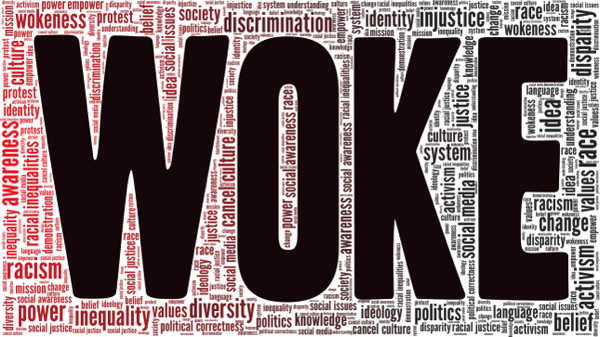Global markets plunge as China retaliates with 34% tariffs on U.S. goods
04/05/2025 / By Willow Tohi

- China has imposed a 34% tariff on all U.S. imports starting April 10, escalating the ongoing trade war in response to President Trump’s reciprocal tariffs.
- Global financial markets reacted with panic, with major indices like the S&P 500 and Stoxx Europe 600 experiencing significant declines. The VIX volatility index surged, and commodities such as copper and oil also suffered losses, raising fears of a global recession.
- This tariff escalation is part of a broader trade conflict initiated by President Trump to reduce the U.S. trade deficit with China. While the deficit has decreased, the latest escalation raises concerns about potential economic damage, including the risk of a U.S. recession.
- The Trump administration plans to provide financial aid to affected farmers, though it may take time to materialize. Republican lawmakers are hesitant to restrain the president, while Trump remains defiant, believing the tariffs give the U.S. leverage in negotiations.
- The international community is concerned, with leaders like Macron and Carney announcing retaliatory measures. The derivatives market anticipates further volatility, and there is a growing expectation of a Fed rate cut by year-end.
In a dramatic escalation of the ongoing trade war, China has announced a 34% tariff on all US imports, effective April 10. The move came in response to President Donald Trump’s reciprocal tariffs, which he unveiled earlier this week. The announcement sent global financial markets into a tailspin, raising fears of a potential global recession and intensifying the economic tensions between the world’s two largest economies.
Market reactions and economic impacts
The news of China’s retaliatory tariffs triggered a wave of panic selling across global markets. S&P 500 futures declined by 4.1%, while Nasdaq 100 futures dropped by 4.6%. The Stoxx Europe 600 Index fell by 5.2%, marking its largest single-day drop since March 2020. The VIX volatility index surged above 45, indicating heightened market anxiety.
Commodities also took a hit, with copper plunging more than 5%, its biggest loss since July 2022. Brent crude oil dropped below $65 per barrel for the first time since August 2021, reflecting concerns about a potential slowdown in global economic growth.
The US dollar initially gained ground but quickly reversed its gains, while the Chinese yuan tumbled. The 10-year US Treasury yield fell to 3.91%, down 15 basis points on the day, as investors sought the safety of government bonds.
Historical context and economic implications
This latest round of tariffs is part of a broader trade conflict that has been simmering since President Trump took office in 2017. One of his top priorities has been to reduce the US trade deficit, particularly with China. The aggressive tariff policies have been seen by some economic analysts as successful in achieving this goal. According to government data released on Wednesday, the trade deficit decreased from 55.7 billion in October to 49.3 billion in November, marking an 11.5% reduction.
However, the latest escalation raises significant concerns about the broader economic impact. Luca Paolini, chief strategist at Pictet Asset Management, warned, “The market is bleeding and more pain is clearly coming as this escalating trade war risks pushing the US economy into a recession. It’s not a surprise China would retaliate. But this will inevitably cause a recession because the damage is done—unless Trump backs off.”
Political and policy responses
The Trump administration has been assuring farm-state Republicans that it will provide financial assistance to farmers affected by the tariffs China imposed on the US last month, which focused on agricultural products. However, the aid may take several months to materialize, leaving many agricultural sectors in a precarious position.
Republican lawmakers, while expressing concerns, have shown little interest in taking immediate action to restrain the president. Arkansas Senator John Boozman summed up the sentiment, “I think most members on our side are very willing to give the president time.”
President Trump, for his part, has remained defiant. He wrote on Truth Social, “CHINA PLAYED IT WRONG, THEY PANICKED – THE ONE THING THEY CANNOT AFFORD TO DO!” He also suggested that the tariffs give the US “great power to negotiate,” but that other countries would need to offer something “phenomenal” for him to relent.
Global reactions and future outlook
The international community has reacted with a mix of concern and caution. French President Emmanuel Macron urged companies to pause their US investments, while Canadian Prime Minister Market Carney announced that Canada would impose 25% tariffs on US-made autos that do not comply with the USMCA deal.
The derivatives market is pricing in more volatility ahead, with options traders betting that the S&P 500 will move roughly 1.6% in either direction after the jobs report. The market is also increasingly pricing in the possibility of a Fed rate cut, with 115 basis points of easing expected by year-end and a 50% chance of a cut in May.
Conclusion
The announcement of 34% tariffs by China on US imports marks a significant escalation in the trade war, with far-reaching implications for global markets and economic stability. As investors and policymakers grapple with the potential for a global recession, the coming days and weeks will be crucial in determining the trajectory of this conflict and its impact on the world economy. The March jobs report and Fed Chair Powell’s remarks will provide key insights into the economic outlook and the potential for policy responses to mitigate the fallout.
Sources include:
Submit a correction >>
Tagged Under:
big government, China, dollar demise, global economy, Inflation, market crash, resist, supply chain, tariffs, trade war, Trump
This article may contain statements that reflect the opinion of the author
RECENT NEWS & ARTICLES
COPYRIGHT © 2017 CONSPIRACY NEWS



















